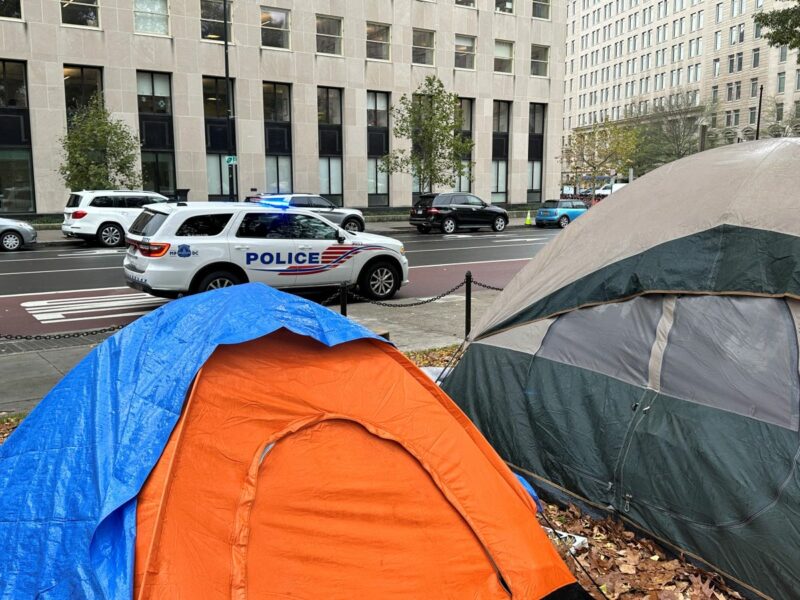Amid a global pandemic and a crippling affordable housing supply shortage, lawmakers in Florida are planning to take nearly two-thirds of the state’s housing dollars and spend them instead on wastewater projects and flood mitigation.
The plan, introduced by Florida Senate President Wilton Simpson (R-Trilby) and House Speaker Chris Sprowls (R-Palm Harbor), would permanently alter the funding priorities of the Sadowski Housing Coalition (SHC), Florida’s largest source of funding for housing projects, to include wastewater and flood mitigation work.
For the next fiscal year, that means the state’s housing programs would see just $141 million in funding compared to the currently available $423 million war chest.
In exchange for the cuts, Simpson and Sprowls said in a letter that Florida’s legislature would not take any more money from the housing fund. A report found that over $2.3 billion has been taken from the fund since 2001.
The plan has been met with stern opposition from state lawmakers, newspapers, and housing rights organizations.
“The money should come from elsewhere,” Rep. Joe Geller (D-Aventura) said. “This money is supposed to be dedicated to housing assistance and that need has not decreased . . . this is the time to increase those funds, not take two-thirds of them.”
According to SHC, Florida has an affordable housing shortage of 334,000 units for the state’s low-income earners. A study by the University of Central Florida found that Orlando needs more than 60,000 affordable units to address its housing supply shortage. In Pinellas County alone, there is a shortage of nearly 54,000 units.
The Orlando Sentinel’s editorial board slammed the proposal as no solution at all:
“Affordable housing isn’t just a moral imperative. It fuels the economy through construction, creates thousands of jobs, and lifts working families out of poverty by allowing them to build long-term wealth through owning a home. And it makes Florida a more attractive location for businesses that don’t want their workers living in squalor. It’s a sound investment.”
Trending Backwards
This isn’t the first time lawmakers in Florida have cut housing funds since the pandemic began either. Last year, Florida Governor Ron DeSantis slashed $225 million from housing on his way to over $1 billion in total spending cuts.
In June 2020, The Sunshine State received over $240 million from federal CARES Act funding. At the time, DeSantis said it was necessary to put the state in a better financial position for 2021. He added during a press conference that the state would “end up with having more money [for affordable housing] than what was actually in the budget” because of the deal. It remains unclear how these dollars were spent.
Meanwhile, other states are looking for ways to improve how they finance affordable housing projects.
For example, in Cincinnati, Ohio, voters will decide on an amendment to the city’s charter to establish an Affordable Housing Trust Fund. This fund would receive dedicated tax dollars to support the development and preservation of affordable housing projects.
According to the amendment, the fund would receive an initial $50 million investment from Ohio’s legislature. At least half of the funds must go toward supportive housing for households making at or below 30 percent of their area’s median income.
A similar fund already exists in Franklin County. Last year, the fund used its $22.3 million allotment to support five new developments and four rehabilitation projects.
The Need for a National Strategy
While Florida is just one state planning to reduce its affordable housing funding, national leaders and housing advocates say the Sunshine State’s plan highlights the need for a more robust funding strategy.
Affordable housing projects are frequently funded through a highly complex web of private investments, state and local grants, and federal money. U.S. Department of Housing and Urban Development (HUD) often supports these projects through the national Housing Trust Fund (HTF) or any one of its myriad grant programs.
During the Trump years, HUD experienced deep cuts to grant programs that help build affordable housing projects. Each of his four budgets attempted to eliminate the Community Development Block Grant program, which helps municipalities fill gaps in funding for affordable housing projects.
After failing to do so, Trump cut over $3.57 billion from public housing operating funds instead.
These efforts had a disastrous impact at the local level. Many states rely on HTFs, or similar funding sources, to provide affordable housing that their real estate market doesn’t support. With depressed tax revenues from the pandemic and swelling demand for affordable housing, many cities struggle to keep up their prior funding levels.
A report by the Housing Trust Fund Project from 2018 found 58 affordable housing funds in forty-seven states, including the District of Columbia. States like Massachusetts, Nebraska, and Nevada have more than one fund, while states like Alabama, Idaho, and Rhode Island have never funded theirs.
The report says an overwhelming majority of the funds that travel through HTFs go to projects in rural areas.
On the national level, HUD announced on April 6 that the agency is dispersing over $693 million to communities through its national HTF. This is near twice its apportionment from FY 2020 and nearly three times as much as the $245 million the program received in FY 2019.
“Even before the pandemic, millions of America’s lowest-income and most marginalized households struggled to pay rent,” said Diane Yentel, president of the National Low-Income Housing Coalition. “Now, these same families are at even greater risk of housing instability and, in worst cases, homelessness.”
“I applaud Congresswoman Torres for introducing common-sense legislation to expand the national Housing Trust Fund to build and preserve stable, affordable homes for renters with the greatest needs.”













